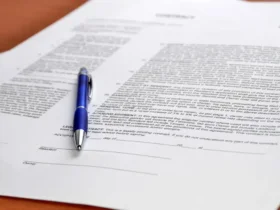Important: We updated this article in January 2023 so all info below is both current and correct. Filing for disability benefits might seem like a science — but it’s not. The truth is, a human being approves or denies your disability claim, not a computer. Which means there are possibly some obstacles that could stop you from getting approved. And that’s true even if you have a legitimate disability that should normally qualify for SSD.
Four Things Nobody Tells You About Filing for Disability
Below, we’ll explain four things nobody tells you about filing for disability. Some of these disability secrets might even help you improve your application. At the very least, you’ll learn how and why the Social Security Administration (SSA) approves some claims — but denies others.
#1 Thing Nobody Tells You: A College Degree Can Hurt Your Chances for Approval.
According to the Center on Budget and Policy Priorities, SSDI approval rates are lowest among people with college degrees. And that’s true no matter what health problems you list on your claim. Why? Because the SSA assumes people with more education can find work opportunities that fit within their current limits. Even after age 50, a high school diploma alone makes it easier to get benefits than having a college degree. There’s nothing you can do if you already finished college — and leaving it off your application won’t help, either. The SSA can see all your background information, even if you leave it off. However, the main factor in getting benefits has to do with how your condition limits your ability to work.
#2 Thing Nobody Tells You: Your SSDI Payment Equals About 40% of the Wages You Earned While Working.
Much like regular Social Security retirement benefits, Social Security disability insurance (SSDI) payments can’t replace 100% of your work income. And that’s because law makers never intended it to cover more than half your usual monthly paycheck. What that means is, filing for disability can help if you cannot work due to health issues. The amount you get is based on averaging your highest paychecks earned over your lifetime. Expecting Social Security benefits (either retirement or disability) to replace your work paychecks is simply not realistic.
Since Federal lawmakers can change Social Security policy any time, filing for disability may pay even less in the future. Want to know the biggest lie people spread online about filing for disability that’s not true? That anyone filing for disability can get benefits without working a day in their lives. Federal law says anyone who never worked (or not recently enough) can only qualify for Supplemental Security Income (SSI). And that’s assuming this person has an eligible disability and owns less than $2,000 in financial assets! In 2023, the most you can get in monthly SSI benefits is $914.
#3 Thing Nobody Tells You: It’s Impossible to Print, Download or Grab a Paper Application Form Anywhere Online or In Person To Fill Out At Home.
That’s right: Even if you’re filing for disability at the local SSA office, you can’t leave with your application. The SSA never lets you take forms home to fill out yourself — an agent must help you in person. People who want to complete these forms in private and review them for mistakes cannot leave with them, unfortunately. And right now, it’s very difficult to get an appointment for help at your local SSA office. Even if you get an appointment, they still won’t send you home with the form!
Filing online lets you fill them out at your own pace and save your progress as you go. When you apply by phone, the SSA agent you’re talking to fills the form out for you. Some people insist on seeing a hard copy and checking their information before giving it to the SSA. If that describes you, then filing for disability with help from an attorney is your only option. Here’s what you need to get started, whether you’re filing for disability on your own or with an attorney’s help. Both ways to apply are completely free. However, a lawyer makes you nearly 3x more likely to get approved and paid faster.
#4 Thing Nobody Tells You: Filing for Disability Only After You’ve Already Run Out of Savings Is a Huge Mistake.
The SSA’s required five-month waiting period means the soonest you’ll get paid is six months after filing for disability. (There are some exceptions.) Need another good reason not to wait? If you make a mistake on your application, it takes 11+ months to get an appeals hearing scheduled, on average! (Click here to see average wait times for hearings in your state). Add those two waiting times together, and you’re looking at nearly two years without income!
If you worked 5 in the last 10 years for jobs where you paid FICA taxes, you might qualify for SSDI. But SSDI is technically an insurance policy. Your FICA taxes pay that policy’s monthly premiums. So five years from the date you last worked, your coverage automatically lapses. If this happens around the same time you file for disability, the SSA automatically rejects your application. You may still qualify for SSI, but the $914 max payment is a lot less than SSDI benefits. Bottom line, don’t wait to apply!
You May Qualify for Legal Assistance
Every SSD claim is unique, and the lawyers in our network can answer your questions for free by phone. Having a lawyer file your claim paperwork nearly triples your odds for getting benefits. Those who qualify for legal assistance through this website usually get $12,000 in back pay, plus monthly benefits. All disability lawyers work on contingency, so you’ll pay $0 for legal assistance unless the SSA awards you benefits. And if you do win, then you’ll only pay one small fee.
Want free expert claim help? Click the button below to sign up for a phone call from a nearby expert during regular weekday work hours:
Get Your Free Benefits Evaluation
Mandy Voisin is a freelance writer, blogger, and author of Girls of the Ocean and Star of Deliverance. As an accomplished content marketing consultant, mom of four and doctor's wife, Mandy has written hundreds of articles about dangerous drugs and medical devices, medical issues that impact disabled Americans, veterans' healthcare and workers' compensation issues since 2016.

















